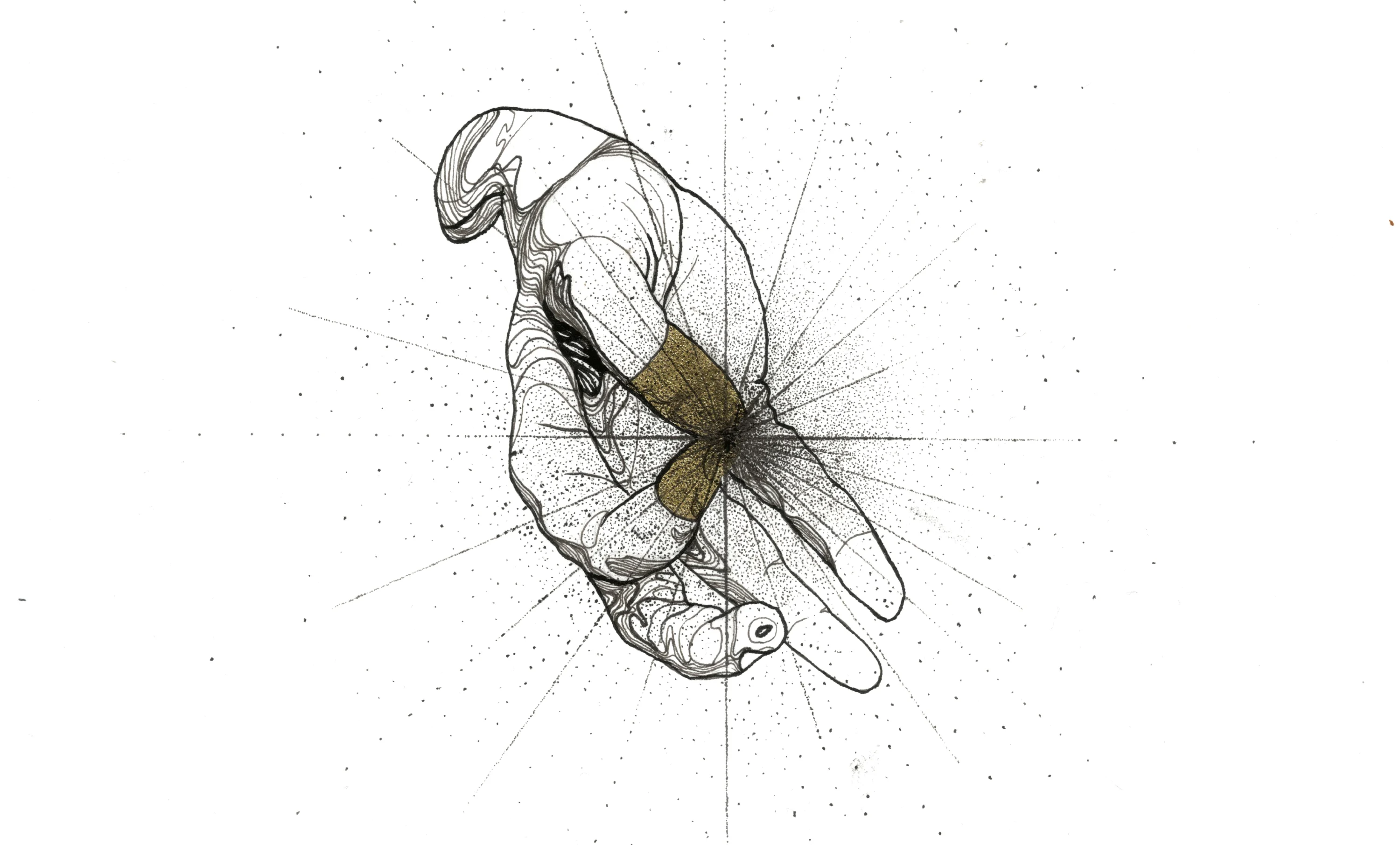
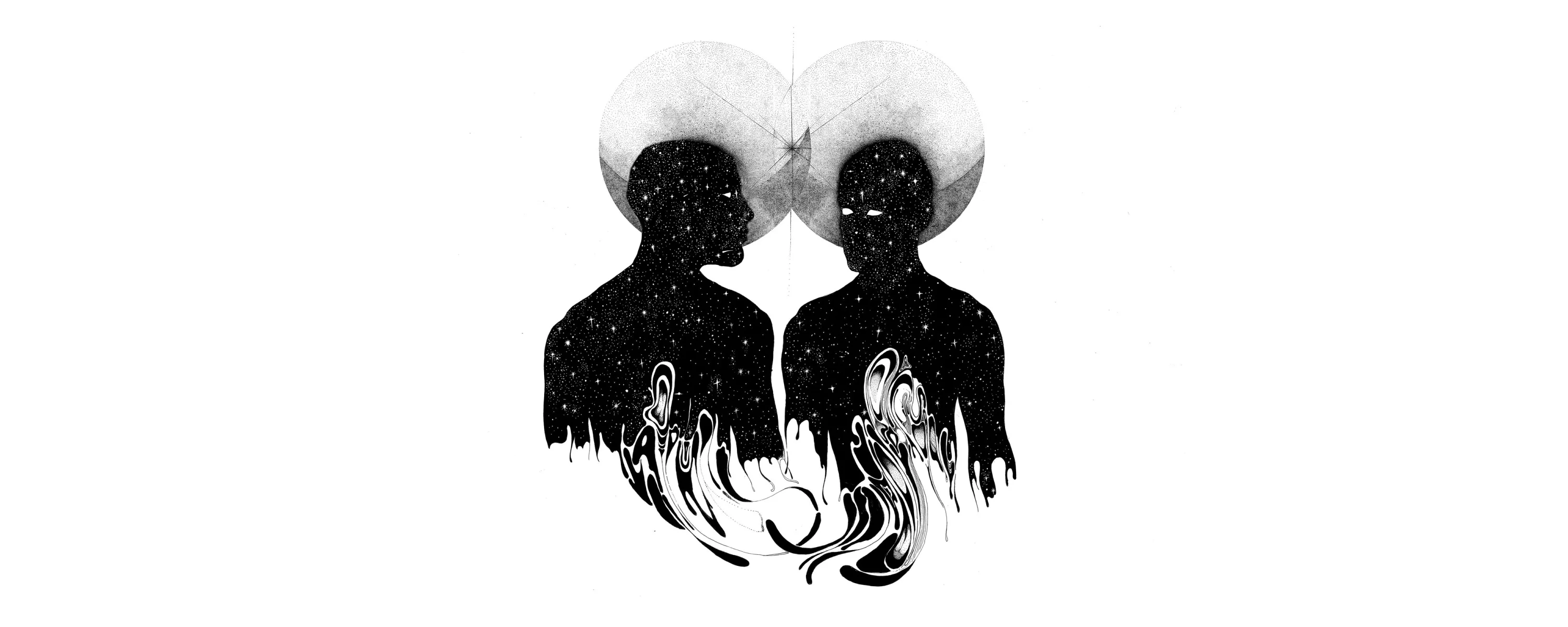
From a very young age, we’re taught it’s important to take care of our bodies. If you fall, you know where to find the first aid kit, if you feel sick you know what medicine works. But our mental health doesn’t get anywhere near the same attention – we don’t know where to find the bandage for our minds.
But of course, the stats around mental health are alarming – from the terribly high suicide rates among young men to the lower level but very damaging rates of depression, anxiety and burn-out. Some progress has been made, and conversations around mental health are more common but there is still some way to go. For many people, the most important shift is how we think about mental health, which is where James Routledge and Sanctus comes in.
Sanctus is an organization that builds, in its own words, “a community of people that believes in mental fitness.” Just like you go to the gym to strengthen your physique, Sanctus believes you can train your mental health in similar ways. And so, they run workshops and meet-ups where they share stories and have open conversations about well-being.
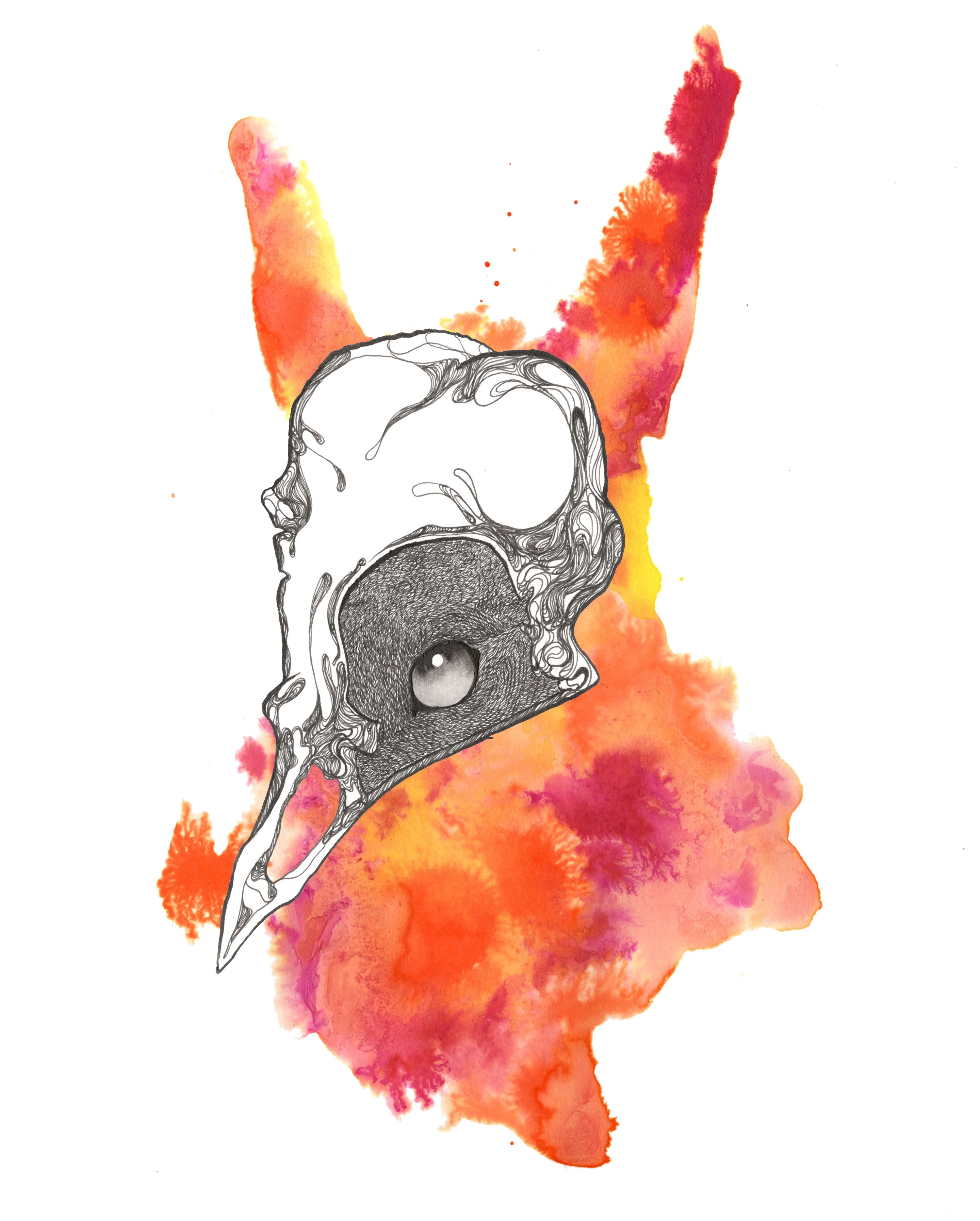
“When we talk about physical health and fitness we don’t just talk about disease or broken legs, or colds or the flu. We talk about going to the gym, working out, and living a healthy lifestyle. That has become quite aspirational in our society,” James explains.
So Sanctus has set its sights on building the world’s first mental health gym. By using this metaphor, they want to reframe the debate into a conversation about mental strength instead of mental weaknesses, focusing on mindfulness, confidence and self-development. This positive approach helps people who are struggling to open up about their thoughts and feelings.
Drawing allows me to let me have that time to engage with my feelings.
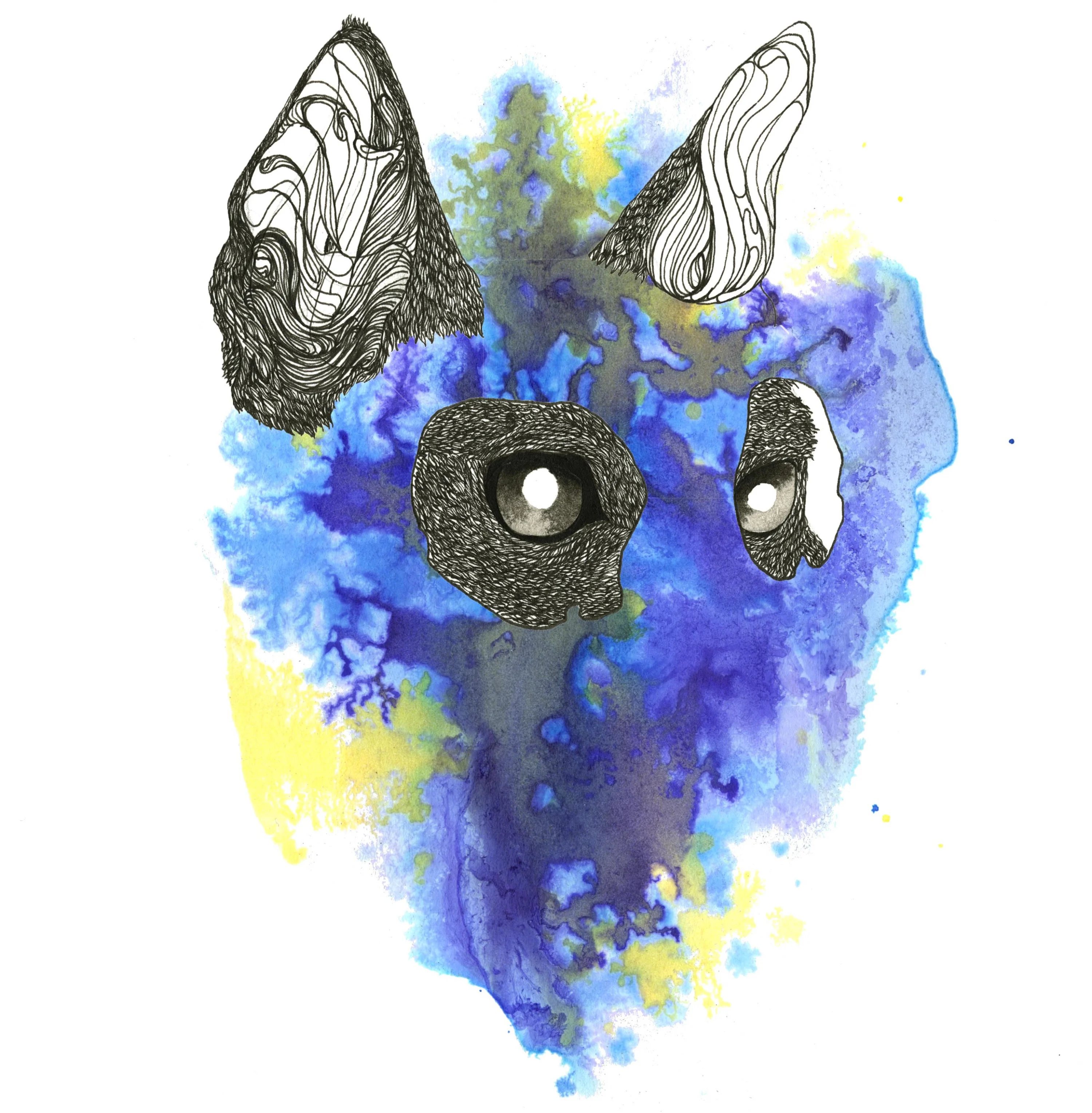
But what would a mental health gym look like? James invited Jonathan G Ernesto, an artist who has struggled with mental health issues himself, to illustrate his interpretation. Mostly working with pencil and ink, Jonathan makes very detailed hand-drawn images.
“When you think of a gym, you think of equipment, all these objects to help with your physical fitness,” he says. “For this piece, a metaphysical thing makes much more sense; something you can’t necessarily see, because that’s part of the process. Mental struggle is all about talking to people and making this connection.”
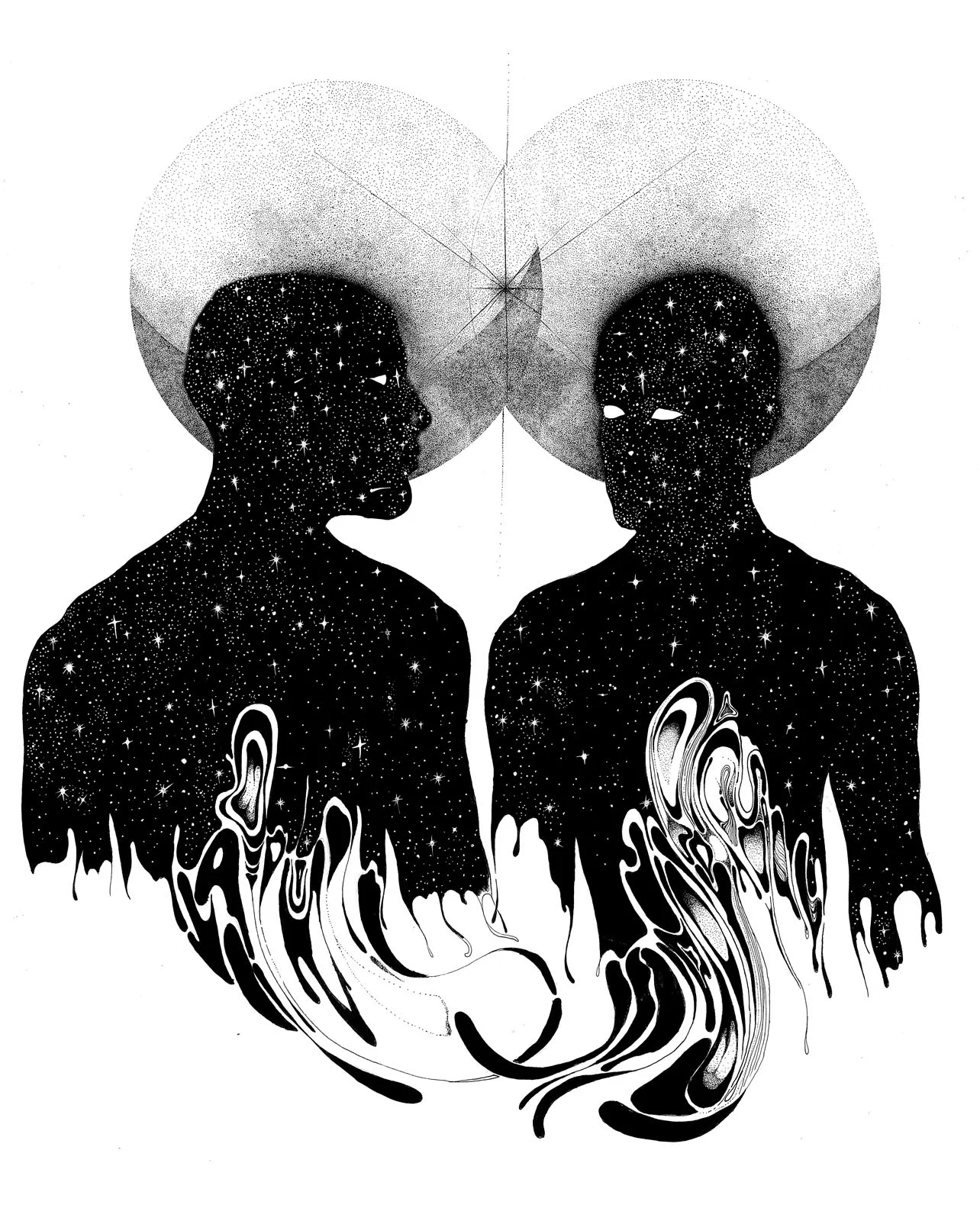
So, Jonathan felt it was contradictory to draw out a physical place. Instead, he focused more on people’s internal progress. The illustration shows two people, struggling with their emotions, but finding a connection together.
For Jonathan, illustration was an important aid in his journey towards a healthy mind. “Sometimes when things happen I don’t immediately know how to process it,” he says. “Drawing allows me to let me have that time to engage with my feelings.” He noticed how his work reflected his mental state. Coming from a stressful place, his art became lighter once he started to feel better.
“Being mindful of your own mental health is so important, because you want to start and work out when are you feeling creative, but also what inhibits your creativity and what encourages it,” James says.
“Every human has mental health. It’s so important to acknowledge this and to look after yourself. I don’t know whether that’s switching off or switching on, but create these little moments to let your mind relax and ease back into itself.”
